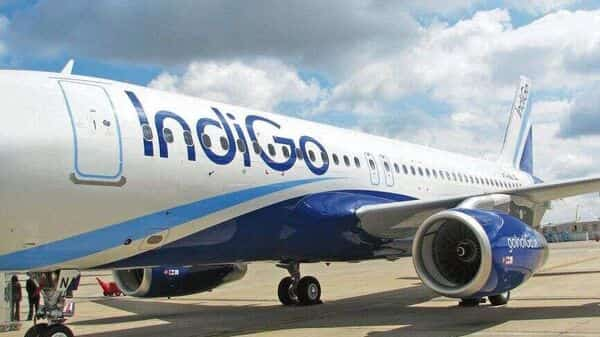[ad_1]
Shortage of engines and spare parts has forced India’s largest airline IndiGo to ground more than 30 aircraft, or around 11% of its fleet, the company said.
“As we work on various cost-efficient measures with OEM (original equipment manufacturers) partners, the endeavour is to minimise the economic impact of 30 aircraft on ground, resulting from this global disruption,” IndiGo said.
The airline is engaging with aircraft and engine manufacturers to mitigate the impact of significant supply chain disruptions that the global aviation sector is facing to ensure continuity of network and operations, it said.
The aviation industry is facing serious challenges following the grounding of 75 aircraft or 10-12% of the fleet because of maintenance and engine-related issues, aviation consultancy firm CAPA India said recently. IndiGo, which has a 57.7% market share and 279 aircraft in its fleet, faces significant disruption even if one aircraft is grounded, considering that it operates more than 1,600 daily flights connecting 74 domestic and 26 international destinations. The airline reported its third straight quarterly loss at ₹1,583.3 crore in the September quarter. IndiGo is concerned about the supply-chain disruptions, high fuel prices and exchange rate volatility, it said on Friday.
“One of the key after-effects of the pandemic in the aviation industry is supply chain disruptions in aircraft manufacturing and subsequent shortage of spare engines. This has affected our operations because of grounding of aircraft and has impacted our ability to fully deploy capacity productively,” Pieter Elbers, chief executive, IndiGo, said during the post-earnings conference call. To meet short- to medium-term capacity needs, IndiGo, which primary operates narrow-body planes, carrying 180-200 passengers, has decided to experiment with wide-body aircraft. It will induct three B777 planes on a wet lease to service the India-Turkey route.
“One reason could be IndiGo, which has inherently believed that wide-body, low-cost model is difficult to navigate, wants to adopt this indirect approach and see whether it can accommodate wide-body in operations and be profitable. Another reason is wide-body planes can seat 300-350 passengers and can help with immediate capacity needs,” said an analyst seeking anonymity.
The airline is also exploring ways to slow down redeliveries via lease extensions and reinduction of aircraft in the fleet, besides evaluating wet-lease options under regulatory guidelines.
“We are bullish on the market opportunities and will continue to add flights in existing and new markets,” it added.
IndiGo is not alone in eyeing a lease-based approach to gain capacity rather than waiting for new aircraft. Air India, Vistara, and SpiceJet have also opted to lease aircraft to meet short- to medium-term capacity needs. Air India has chalked out a 15-month plan where it will receive 30 aircraft on lease.
As airlines face capacity pressure because of supply chain issues, analysts and industry experts are of the view that this will be a headwind for them and will add to woes with regard to volatility in fuel prices and rupee depreciation.
The pace of supply in terms of aircraft, leased aircraft, engines, and spare parts has been severely hit first by the covid-induced lockdowns worldwide that impacting manufacturing lines and then with the slowdown because of the Ukraine war. It will take at least 1-2 years for this to be fully back on track, an aviation analyst said.
Any impact on capacity in a high-demand peak quarter of Q3 will be an additional challenge for the industry, he said.
Supply chain issues could also reflect in liquidity problems for some carriers as the income from sale and leaseback financing may be less than planned, CAPA India said. Delay in fuel-efficient new aircraft deliveries will also lead to higher maintenance costs on older aircraft in the fleet, it contended.
The delay in delivery of new fuel-efficient aircraft, which claim 16% more fuel efficiency, will lead to more expenses for IndiGo on overhauling and maintaining older aircraft. Fuel expenses for Indigo rose to ₹6,257.9 crore in the September quarter from ₹1,989.4 crore in the year-ago. It also suffered forex loss of ₹1,201.5 crore.
Aircraft leasing to cater to capacity shortfall also comes with its own set of challenges as it requires commercial negotiations and technical inspections. Besides, the configuration of the interiors is different from what one operates. There are also practical issues during aircraft rotation. Domestic airlines will be better off to hold capacity at pre-covid levels for at least this winter schedule, Kapil Kaul, chief executive officer and director, CAPA India. The next 6-9 months are likely to be turbulent because of the high cost of fuel, high-interest rates, high inflation, and continuing geopolitical tension.
Download The Mint News App to get Daily Market Updates & Live Business News.
[ad_2]
Source link
John Miller has been writing about science, gaming, and tech culture for over a decade. He’s a top-rated reviewer with extensive experience helping people find the best deals on tech and more.



